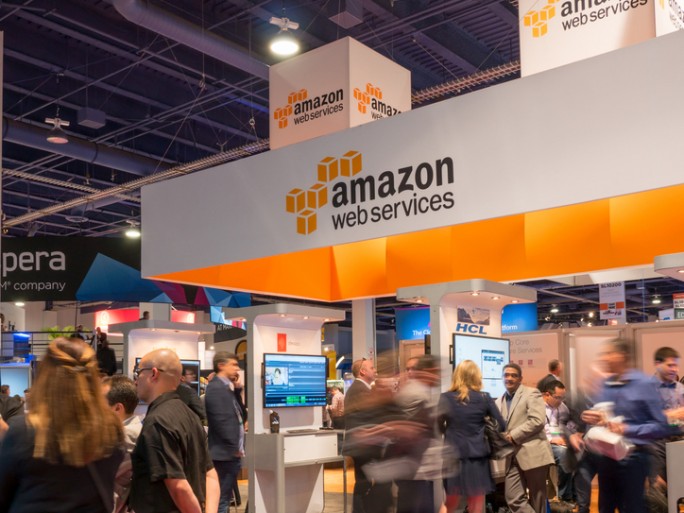AWS Diary: Amazon To Open Middle Eastern Region In Bahrain

AWS NEWS: Amazon adds per-second billing and will open new data centres in Bahrain to serve Middle East
Amazon Web Services (AWS) , the cloud computing division of Amazon.com, is the largest out of all the public cloud providers, dominating the industry The division, headed up by AWS CEO Andy Jassy, is investing heavily in expanding its global regions – with new data centres recently opening in Sweden, London and Canada – and the Internet of Things.
Here’s the latest and most important news on the public cloud provider:
September 2017: Amazon to open Middle Eastern region in Bahrain
Amazon Web Services (AWS) is to launch a new infrastructure region in Bahrain by early 2019, serving customers in the Middle East.
The new region will comprise three availability zones at launch, complementing a new AWS Edge Network Location that will go live in early 2018. The Bahrain facility will be powered by renewable energy thanks to a solar farm being built in the country.
AWS has also opened offices in the region and has also made investments in education, training and startup support.
“As countries in the Middle East look to transform their economies for generations to come, technology will play a major role, and the cloud will be in the middle of that transformation,” said Andy Jassy, AWS CEO.
“Some of the most gratifying parts of operating AWS over the last 11 years have been helping thousands of new companies get started, empowering large enterprises to reinvent their customer experiences, and allowing governments and academic institutions to innovate for citizens again. We look forward to making this happen across the Middle East.”
September 2017: AWS introduces per-second billing for some services
Amazon Web Services (AWS) is introducing per-second billing for some of its services, claiming it will be more cost effective for organisations that need to scale rapidly, marking a natural extension of the pay-as-you-go model of the cloud.
From 2 October, all new Linux EC2 instances – launched in on-demand, reserved and sport – will be billed in one second increments, and the model also applies to Amazon EMR and AWS Batch. It is not available for Windows or Linux distributions that have a separate hourly charge.
Spot instances are where customers effectively bid for capacity on AWS. By targeting ‘quieter’ times, they can reduce their bill.
“Some of our more sophisticated customers have built systems to get the most value from EC2 by strategically choosing the most advantageous target instances when managing their gaming, ad tech, or 3D rendering fleets,” noted AWS’s Jeff Bar.
“Per-second billing obviates the need for this extra layer of instance management, and brings the costs savings to all customers and all workloads.”
There is one catch however, there is a minimum charge of one minute.
August 2017: AWS Glue now generally available
AWS customers around the world can now access Glue, a fully managed and serverless extract, transform and load (ETL) service.
The severless nature of Glue separates itself from other ETL services, as does the automatic detection of schemeas from multiple data sources and types, which simplifies analysis.
Glue can also automatically generate ETL scripts and provides additional tools for developers.
August 2017: Amazon adds machine learning to stop data leaks
Amazon has unveiled a machine learning-based tool aimed at securing sensitive data held in the cloud, after a number of high-profile data leaks involving customers of Amazon Web Services (AWS).
The tool, called Macie, was announced at the AWS New York Summit event along with an automated extract, transform and load (ETL) service and a unified repository of AWS’ data migration tools.
The announcement follows several data breaches in which major companies were found to have stored sensitive data on AWS Simple Storage Service (S3) in a way that left it publicly accessible.
August 2017: AWS joins the Cloud Native Computing Foundation
In an unexpected move on Aug. 9, Amazon Web Services announced that it is joining the Linux Foundation’s Cloud Native Computing Foundation as a Platinum member.
The move brings AWS into the open-source group that is leading the development of the Kubernetes container orchestration system.
It makes sense that AWS, being the leader in terms of market share and revenue in the public cloud, would want to be engaged with the CNCF. By becoming a member of the foundation, AWS now has a literal seat at the table, with Adrian Cockcroft, vice president of cloud architecture strategy at AWS, now on the governing board of the CNCF.
However that doesn’t necessarily mean Amazon will start offering its own Kubernetes service. Instead it needs to ensure AWS can host Kubernetes deployments.
June 2017: AWS expands into call centres with Amazon Connect
AWS has spread its wings with the launch of a cloud-based call centre service called Amazon Connect which uses speech recognition and artificial intelligence (AI) software to manage calls.
It incorporates Amazon’s Lex AI technology to enable natural language processing in the cloud, meaning businesses can improve the customer experience while avoiding having to fork out up-front costs through a pay-as-you-go pricing structure.
Amazon Connect works with both existing AWS services and third-party CRM and analytics services and will also be integrated with Salesforce’ Service Cloud Einstein.